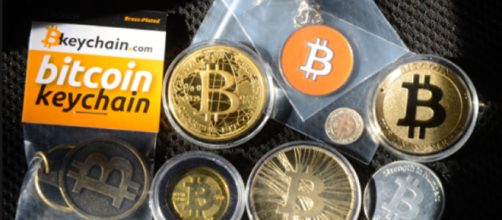The new record arrived at 14.14 on Wednesday, when Bitcoin price reached 11,517.40 dollars. Then the descent and the route swings, with continuous falls and climbs that, at the moment, place it around 10,300 dollars. That's almost 1000 percent more than on 1 January, when it was not even worth a thousand. Yet hostility is growing: the last "bad" statements come from Joseph Stiglitz, nothing less than Nobel for Economics, and from Yves Mersch, executive board member of the ECB, who called Bitcoin a payment instrument for failed states.
Stiglitz asks for making Bitcoin illegal
"Bitcoin should be declared outlawed" Stiglitz hoped, justifying his statement by the fact that "it does not have a socially useful function." "Bitcoin is only successful because of its potential for circumvention and lack of supervision," Stiglitz added. But in the meantime, Bitcoin likes many people, is an unknown species. "Bitcoin likes grandmothers," titled the Wall Street Journal to make the concept. For Stiglitz, it is a great risk: "It's a bubble that will give many people a lot of exciting moments as they climb up and down." he said in an interview with Bloomberg Television.
The ECB against Bitcoin: "currency for failed States"
Bitcoin's performance is attracting the attention, and often hostility, of Financial Institutions, as demonstrated by the intervention of Yves Mersch, member of the Board of Directors of the ECB, during a conference in Italy on payment systems in progress.
Bitcoin are securities "without identifiable issuers," and therefore only an "alleged innovation," according to the member of the board of the ECB, which is characteristic of a speculative context.
In his speech, Mersch pointed out, "the considerable increase in the value of some cryptocurrencies, which started from modest levels," and recalled that we should not lose sight of the fact that their use as settlement activities is marginal and their overall degree of acceptance among users as a means of payment is negligible. Being by definition virtual, they do not represent a claim on an issuer and do not formally qualify as a currency.
"Their purchasing power" Mersch continues, "is subject to wide fluctuations and depends exclusively on the market activity of speculators. It has to be understood if these virtual currencies can be considered as alternative means of payment for consumers, except in extreme cases, such as in failed states".


